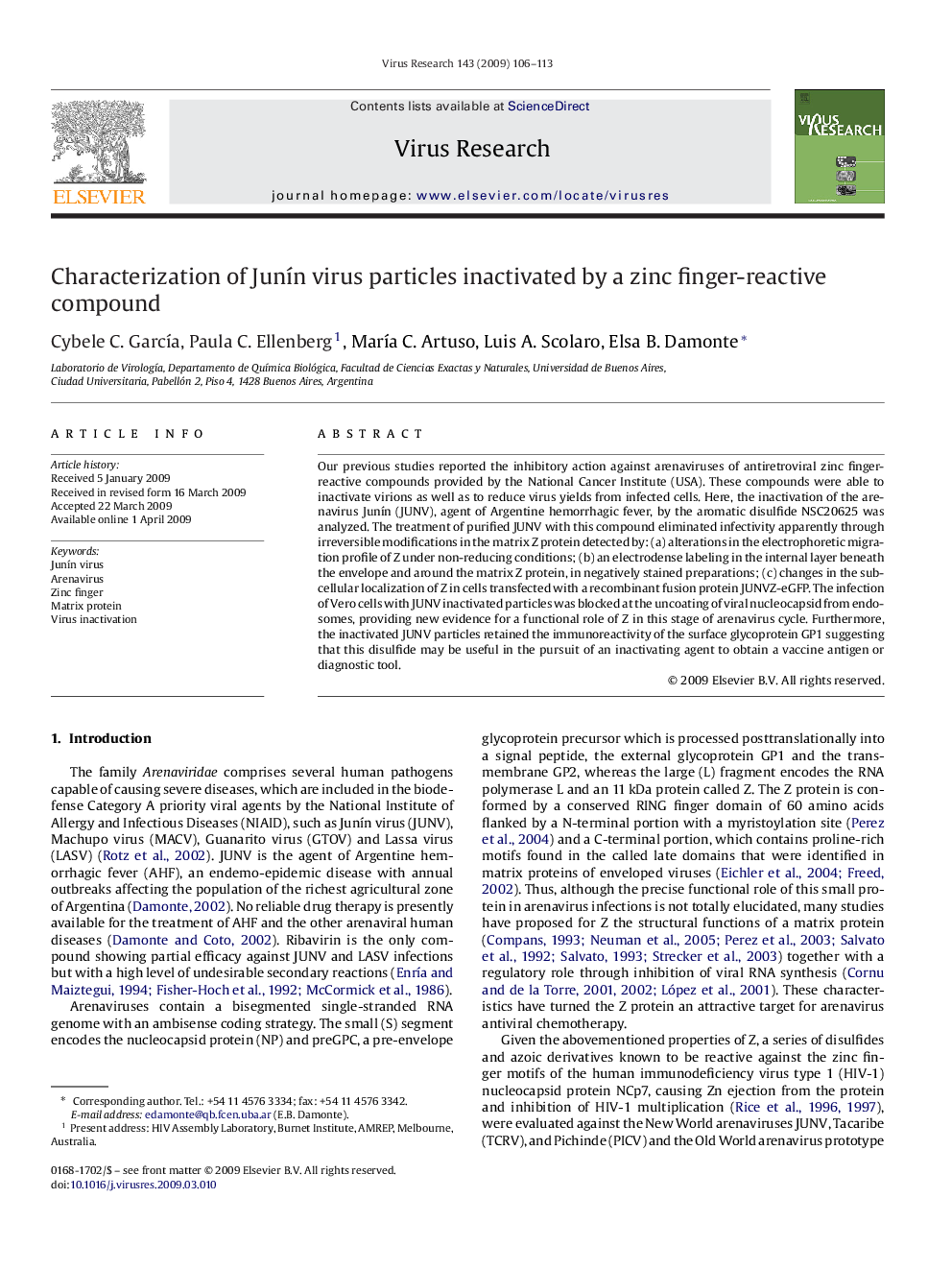| Article ID | Journal | Published Year | Pages | File Type |
|---|---|---|---|---|
| 3430028 | Virus Research | 2009 | 8 Pages |
Our previous studies reported the inhibitory action against arenaviruses of antiretroviral zinc finger-reactive compounds provided by the National Cancer Institute (USA). These compounds were able to inactivate virions as well as to reduce virus yields from infected cells. Here, the inactivation of the arenavirus Junín (JUNV), agent of Argentine hemorrhagic fever, by the aromatic disulfide NSC20625 was analyzed. The treatment of purified JUNV with this compound eliminated infectivity apparently through irreversible modifications in the matrix Z protein detected by: (a) alterations in the electrophoretic migration profile of Z under non-reducing conditions; (b) an electrodense labeling in the internal layer beneath the envelope and around the matrix Z protein, in negatively stained preparations; (c) changes in the subcellular localization of Z in cells transfected with a recombinant fusion protein JUNVZ-eGFP. The infection of Vero cells with JUNV inactivated particles was blocked at the uncoating of viral nucleocapsid from endosomes, providing new evidence for a functional role of Z in this stage of arenavirus cycle. Furthermore, the inactivated JUNV particles retained the immunoreactivity of the surface glycoprotein GP1 suggesting that this disulfide may be useful in the pursuit of an inactivating agent to obtain a vaccine antigen or diagnostic tool.
